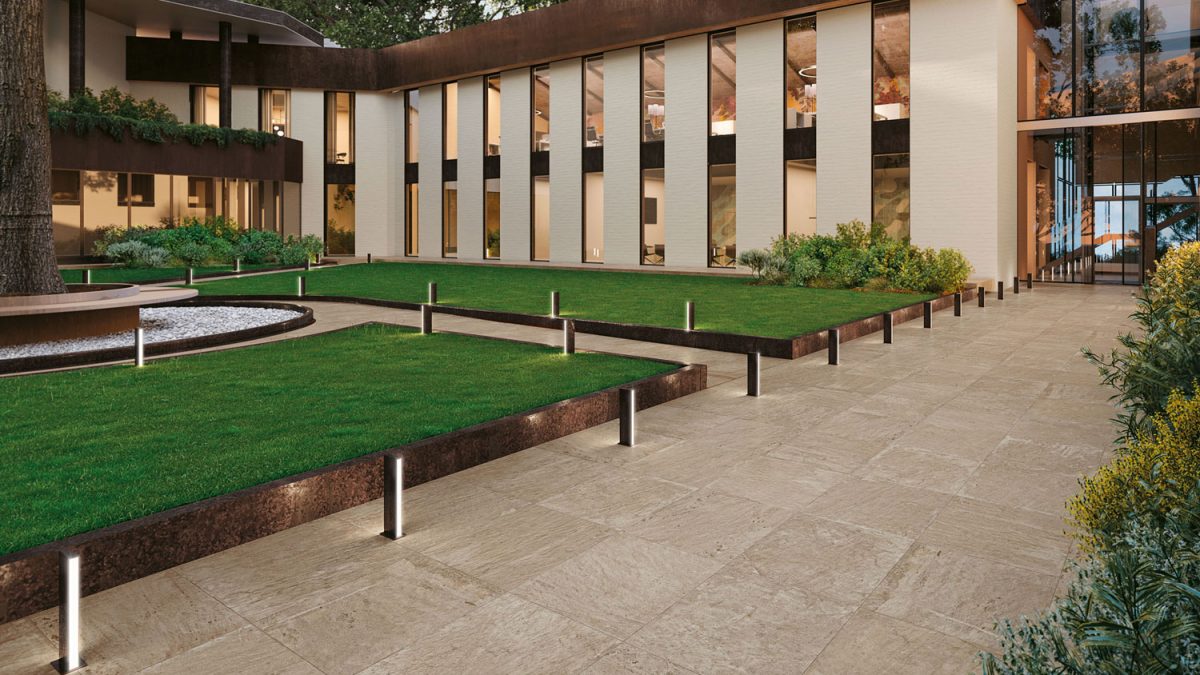
How to choose tiles for a commercial floor? What are the standards for commercial floor tiles?
When you choose tiles for a commercial floor, you impact both the aesthetics and the functionality of your space. Your tiles must not only be attractive and durable, but also comply with current regulations. To help you meet these requirements, this article will guide you, step by step, to identify the criteria to consider and know the standards to respect.
Criteria for choosing tiles for commercial floors
1. Resistance
A commercial floor is subject to heavy traffic, whether from customers, employees or heavy equipment, resistance is the first criterion to consider. UPEC-classified tiles are approved for their robustness. The UPEC classification evaluates the resistance of the tiles to different types of constraints, and ensures their durability for commercial use.
2. Aesthetics
The image of your business is reflected in the aesthetics of your establishment. Thus, the floor tiles must be in harmony with the style you want to give to your business, modern, classic or minimalist. The choice available is wide, both for colors and textures as well as for formats. Know how to adapt your choice of aesthetics to the tastes of your customers so that their experience of your business is as positive as possible.
3. Maintenance
Maintaining a commercial floor is a regular task that should therefore be the most practical and easiest to perform. To maintain a new and clean appearance, ceramic and porcelain stoneware tiles are particularly recommended due to their ease of maintenance and resistance to stains. Choose tiles that do not require specific cleaning products, in order to facilitate daily maintenance.
Standards for commercial floor tiles
Safety is not only a concern for your business but also a legal obligation. For this, different standards apply to commercial tiles:
1. The UPEC standard
The UPEC standard evaluates the resistance of tiles according to 4 criteria:
- Wear (U)
- Punching (P)
- Water (E)
- Chemistry (C)
For a commercial floor, it is recommended to choose tiles with a classification U4P4E3C2 or higher. This classification ensures maximum durability, even under conditions of intensive use, resistant to frequent passages, heavy objects, bad weather and cleaning chemicals.
2. The PEI standard
The PEI (Porcelain Enamel Institute) standard classifies tiles according to their resistance to abrasion. For your commercial space, choose a tile classified PEI IV or V. These classifications determine the resistance to heavy traffic, the appearance and integrity of your floor are guaranteed over the long term. For information, a PEI V tile supports the most difficult conditions, such as the constant movement of people and objects, without being damaged.
3. The DIN 51130 standard
A non-slip floor is a guarantee to minimize the risk of falls, the DIN 51130 standard classifies tiles according to their slip resistance. For information, a tile with an R10 or R11 classification is suitable for high traffic areas. This standard guarantees you a safe tile surface for your customers and employees, particularly in areas where the risk of slipping is high, such as entrances, kitchens or sanitary areas.
FAQ: Frequently Asked Questions About Commercial Floor Tiles
What is the best tile option for a restaurant?
A restaurant tile needs to be both functional and aesthetic. commercial tiles in porcelain stoneware are therefore particularly recommended. They are stain-resistant, easy to clean and offer a wide variety of designs to suit the ambiance of your establishment. For high traffic areas and kitchens, the PEI V and DIN 51130 standards are suitable.
What are the selection criteria for shop floor tiles?
Shop floor tiles require strength, safety and aesthetics at the same time. The tiles must be able to support the weight of furniture and displays without cracking, be non-slip to ensure safety, and also aesthetically pleasing to attract and retain the attention of customers. A floor tile classified U4P4E3C2 and R10 is perfectly suitable.
How to maintain commercial tiles?
The maintenance of commercial tiles varies depending on the material chosen. Ceramic and porcelain stoneware tiles are particularly practical because they simply require regular cleaning with non-abrasive products. For natural stone tiles, use specific products to avoid damaging them. Important: avoid acidic products that can damage the surface of all types of tiles. Prefer mild detergents and lukewarm water for effective cleaning. Be aware that light but regular maintenance is enough to maintain the appearance and durability of the tiles.
What are the advantages of porcelain stoneware for a commercial floor?
Porcelain stoneware is the king of tiles for commercial floors. Very resistant, ideal for high traffic areas, its maintenance is easy to carry out. It is also available in a wide variety of styles, allowing you a wide choice for the aesthetics and image of your business. Its resistance to chemicals and water makes it a versatile and durable material.
Conclusion
Choosing the right tiles for a commercial floor means building your business on a solid foundation and guaranteeing durability, safety and aesthetics. By taking these criteria into account, your choice will meet the specific needs of your business. From a legal point of view, your tiles must comply with current standards, such as UPEC, PEI and DIN 51130 classifications. By following these recommendations, your commercial space will be both functional and welcoming, optimizing your customers’ experience and your company’s image.

 Listen
Listen



